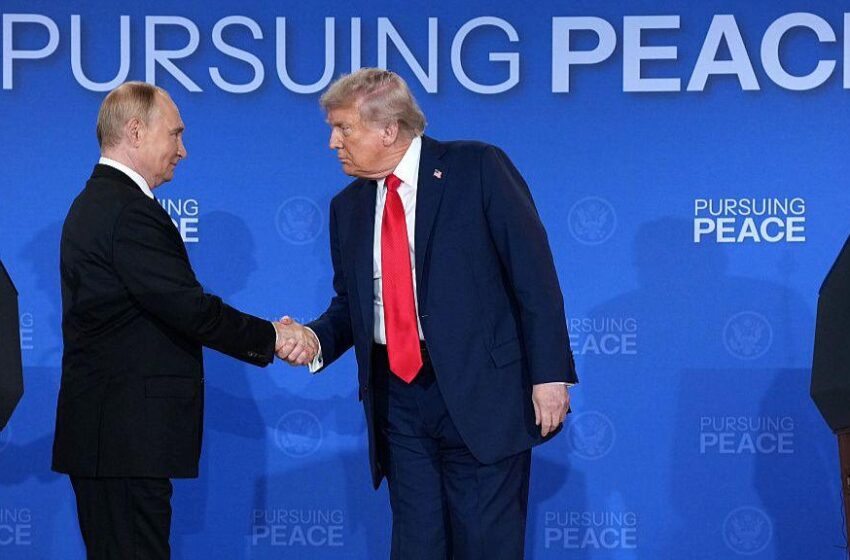Putin-Trump Alaska Summit: What it means and what you should know

President Trump and President Putin during their Alaska summit talks. Photo: Getty Images
In a meeting that has captured global attention, U.S. President Donald Trump and Russian President Vladimir Putin convened in Alaska to discuss pressing international issues, including the war in Ukraine, energy cooperation, and Arctic security. The summit, held in Anchorage, marks the first high-profile face-to-face encounter between the two leaders since Trump returned to the presidency.
While the discussions were cloaked in diplomatic language, the tone suggested a potential recalibration of U.S.–Russia relations, a shift that could have wide-reaching geopolitical consequences.
Key Takeaways From the Alaska Summit
Trump revealed 10 major takeaways in a post-summit interview with Fox News’ Sean Hannity. Among the most notable were:
- A potential peace framework for Ukraine: Trump claimed progress was made on a ceasefire outline, although no formal agreement was signed.
- Commitments on Arctic cooperation: Both leaders reportedly agreed to expand joint initiatives in the Arctic, an area of strategic importance for energy and defense.
- Energy market discussions: Talks included oil production and pricing stability, hinting at a possible energy pact.
These points suggest both leaders were aiming for tangible deliverables rather than symbolic gestures.
Why Alaska Was Chosen as the Venue
Hosting the summit in Alaska was more than symbolic. The state’s proximity to Russia, coupled with its strategic Arctic position, made it a neutral yet significant meeting point. Anchorage served as a politically calculated backdrop, signaling the U.S.’s readiness to balance diplomacy with geographic pragmatism.
READ ALSO
Trump signals high stakes ahead of Putin summit in Alaska: “I won’t be happy if…”
Gloria Gaynor, others nominated for Kennedy Center Honors by Trump
Ukraine War: Signs of a Shift?
While Trump did not confirm any immediate troop withdrawals or sanctions relief, his remarks indicated an openness to “ending the bloodshed sooner rather than later.” Putin, for his part, reiterated Russia’s stance that any resolution must recognize what he called “new realities” on the ground, a phrase often used to refer to territories Russia claims to have annexed.
Observers warn that any rapid compromise could leave Ukraine in a vulnerable negotiating position, while supporters argue that a negotiated settlement could halt further loss of life.
International Reactions
The summit sparked mixed reactions worldwide. European allies voiced concerns over any concessions to Moscow, while China cautiously welcomed the possibility of eased U.S.–Russia tensions. In Ukraine, reactions were divided between hope for peace and fear of territorial concessions.
What This Means for U.S. Foreign Policy
If the discussions lead to follow-up negotiations, the Alaska meeting could be the opening chapter of a new, and controversial, era in U.S.–Russia relations. Trump’s willingness to meet Putin so early in his presidency signals that Russia policy will remain central to his foreign agenda.

